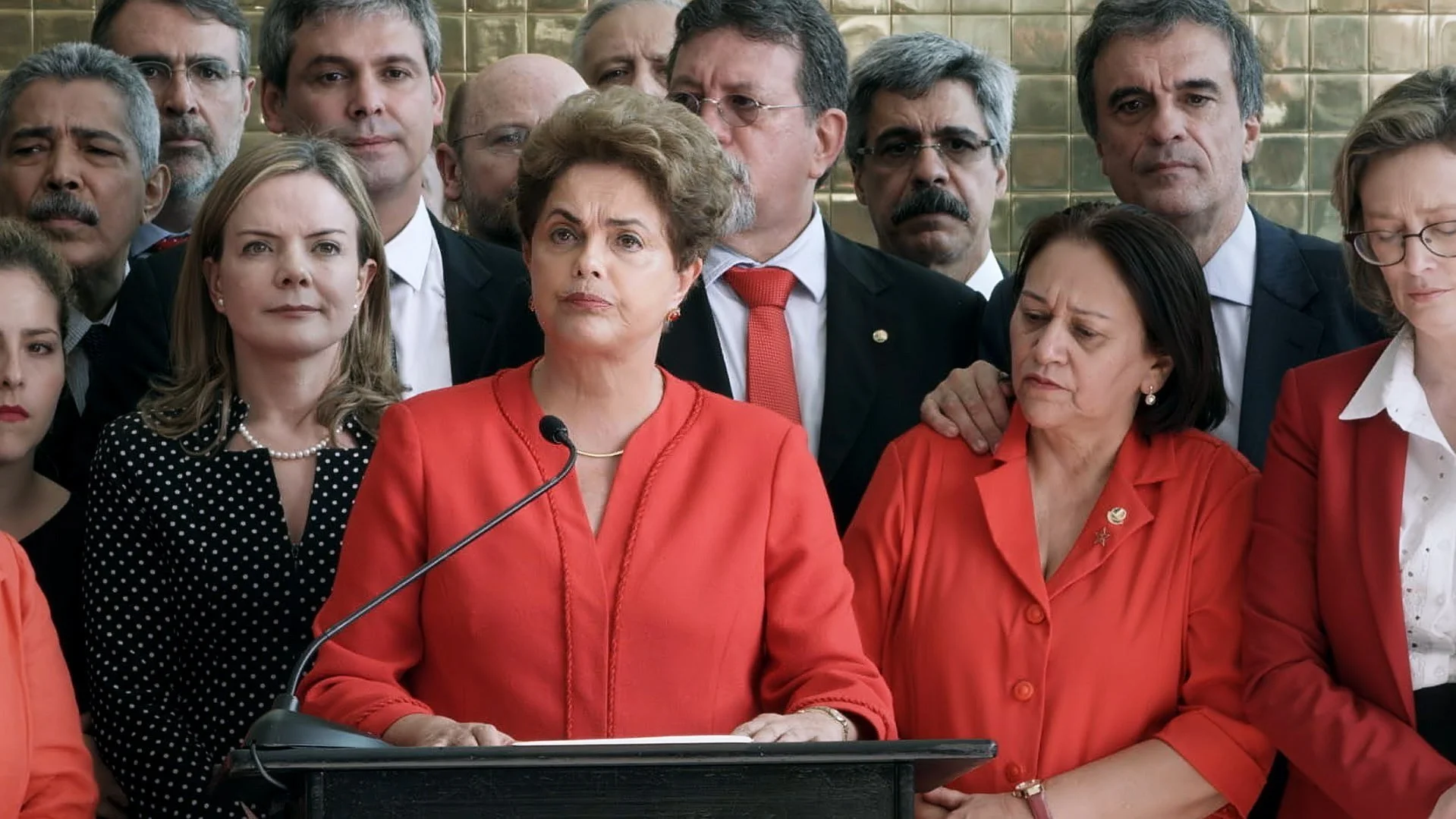The Trial (2020)
Maria Augusta Ramos gives viewers a ringside seat as Dilma Rousseff faces her accusers.
The Trial is the first film by Maria Augusta Ramos that I have seen but this Brazilian documentarist is well known in her own country and indeed since 1997 she has received no less than thirteen awards for her work, five of them for this very piece. That does not surprise me for The Trial is a very accomplished documentary, one that put me in mind of the great American veteran Frederick Wiseman. Following his example, The Trial comes with no commentary but shows a keenly observational eye both in relation to the events being recorded and for images that capture the atmosphere whether indoors or out.
The film's title is such that some might expect it to be a new screen version of Kafka's classic novel and, indeed, although the trial with which Ramos is concerned here is that of Dilma Rousseff in 2016, reference is made to Kafka in the course of the hearing. But the aim of this film is to present a clear outline of how charges were brought against Rousseff who was at the time Brazil's President and the first female to be so elected. The attempt to impeach her could be seen as a rigged game with the charges, two in number, both being highly questionable: one related to delayed repayment of agricultural subsidies (arguably not her responsibility) and the other to fiscal decrees supposedly issued without the approval of Congress (which had in fact been given). Nevertheless, what was largely a party matter having been brought about by those who disapproved of Rousseff's liberal stance would through the Senate hearings bring her down.
It is fair to think of The Trial as a companion piece to another fine documentary, Petra Costa's The Edge of Democracy which, completed in 2019, reached us earlier but was made over three years or so. Costa's piece covers much of the same ground (many figures can be seen in both films) but it throws its net wider since Ramos has chosen to focus entirely on Rousseff and the events of 2016. For that reason, the two films are complementary. However, Costa's film had a voice-over commentary in English and is certainly the easier film for an audience not already well versed in this period of recent Brazilian history, one notable for widespread corruption as well as for its attacks on democracy. Doubtless Ramos quite justifiably had in mind first and foremost Brazilian viewers familiar with these events and with the people involved. What she has delivered is thoughtful, stylish and unrushed (again like Wiseman she takes her time, in this instance 140 minutes).
There is plenty of footage of Rousseff and of the defence team but, if one never doubts where Ramos herself stands, the film allows the facts to speak for themselves and what she has given us is a clear-headed historical record. Viewers already well primed generally or aided by having first seen The Edge of Democracy will find in The Trial a work which takes them into close-up to focus judiciously and valuably on exactly what was said and done between April and August 2016, the months that would be Dilma Rousseff's last as President of Brazil.
Original title: O Processo.
MANSEL STIMPSON
Featuring Dilma Rousseff, José Eduardo Cardozo, Eduardo Cunha, Lindbergh Farias, Janaína Paschoal, Michel Temer, Gleisi Hoffmann, Jean Wyllys, Luis Inácio Lula da Silva, Jandira Feghali.
Dir Maria Augusta Ramos, Pro Leonardo Mecchi, Screenplay Maria Augusta Ramos, Ph David Alves Mattos and Alan Schvarsberg, Ed Karen Akerman.
Conijn film/Enquadramento Produções/Nofoco Filmes/Autentika Films-MUBI.
140 mins. Brazil. 2018. Rel: 18 August 2020. Available on MUBI. No Cert.


